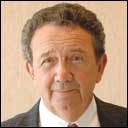Peter F Vaira

October 31, 2006 | Law.com
Fumo Investigation Produces Disturbing Decision on Defense Attorney Tactics (Part II)The court's decision in holding that counsel's failure to permit their client to proffer was evidence of a conflict fails to consider the reality of the role of competent defense counsel in representing a witness, either subject or target.
By Peter F. Vaira
10 minute read
June 13, 2006 | The Legal Intelligencer
Likely Typographical Error in Local Criminal Rule Alters ProhibitionLocal Criminal Rule 16(b) was amended in 1997 to become Local Criminal Rule 41.1(b). There is substantial evidence that there is a typographical error in the text of the amended rule that changed the procedure required for assigning wire interception applications to district court judges.
By Peter F. Vaira
8 minute read
September 17, 2007 | The Legal Intelligencer
A New Right?A federal grand jury witness, recalled to testify before the grand jury, should have a right to examine the transcript of his or her prior testimony. Up to now courts have rarely granted such requests. The Department of Justice has consistently opposed an
By Peter F. Vaira
8 minute read
October 11, 2005 | The Legal Intelligencer
Hall v. Clifton Precision: Alive, Dead or Quietly Slipping Away?In 1993, the late Judge Robert S. Gawthrop issued a pre-trial order regarding a discovery dispute in Hall v. Clifton Precision, which caused immediate turbulence among the litigating bar. Although the order applied only to that case, the opinion could have been adopted by other judges.
By Peter F. Vaira
9 minute read
January 26, 2009 | The Legal Intelligencer
Complex ResolutionsMost litigators are familiar with the traditional mediation process, where all parties present their positions to the mediator, and the mediator gives his or her view of a likely outcome and the reasonable value of the case.
By Peter F. Vaira
9 minute read
March 08, 2005 | The Legal Intelligencer
Frequently Asked Questions Regarding Electronic FilingThe electronic case filing (ECF) system has been in use in the Eastern District of Pennsylvania since May 16, 2002, when the court adopted Rule 5.1.2 of the Local Rules of Civil Procedure. The system allows counsel to file documents via the Internet using their Web browsers and to have immediate access to other documents filed electronically. Documents may be filed and viewed 24 hours a day.
By Peter F. Vaira
6 minute read
November 17, 2008 | The Legal Intelligencer
An Even KeelThe Supreme Court case of Exxon Shipping, et al. v. Baker, 128 S. Ct. 2605, (2008) concerned the grounding of the Exxon Valdez super tanker in Alaska in 1989, and the oil spill
By Peter F. Vaira
8 minute read

March 09, 2010 | The Legal Intelligencer
The Brady Disclosure Requirement's Application to SentencingIn Brady v. Maryland and Giglio v. United States, the U.S. Supreme Court established the rule that defendants in criminal trials have a due process right to receive favorable information from prosecutors regarding the defendants' conduct that would aid in the defense of the charges.
By Peter F. Vaira
7 minute read
June 14, 2005 | The Legal Intelligencer
Civil Trials by Magistrate Judges a Vital Tool and Well-Kept SecretUnknown to many litigators, U.S. magistrate judges have the power to conduct civil jury and nonjury trials with the same authority and jurisdiction as district court judges. The use of the magistrate judges for civil trials is slowly gaining acceptance in this district, but the greatest impediment to their use are two historical misconceptions.
By Peter F. Vaira
7 minute read
April 04, 2006 | The Legal Intelligencer
A Primer on Compulsory Arbitration in the Eastern DistrictSince 1978, the Eastern District of Pennsylvania has had a compulsory arbitration program for certain civil cases which request only money damages under a specified amount. The plaintiff must indicate on the civil designation form, filed with the clerk, that the requested damages exceed $150,000 in order to be exempt from arbitration.
By Peter F. Vaira
8 minute read
Trending Stories
- 1On the Move and After Hours: Brach Eichler; Cooper Levenson; Marshall Dennehey; Archer; Sills Cummis
- 2Review of Ex-parte orders by the Appellate Division
- 3'Confusion Where Previously There Was Clarity': NJ Supreme Court Should Void Referral Fee Ethics Opinion
- 4How Amy Harris Leverages Diversity to Give UMB Financial a Competitive Edge
- 5Pa. Judicial Nominee Advances While Trump Demands GOP Unity Against Biden Picks
More from ALM
- Legal Speak at General Counsel Conference East 2024: Match Group's Katie Dugan & Herrick's Carol Goodman 1 minute read
- Legal Speak at General Counsel Conference East 2024: Eric Wall, Executive VP, Syllo 1 minute read
- Legal Speak at General Counsel Conference East 2024: Virginia Griffith, Director of Business Development at OutsideGC 1 minute read



